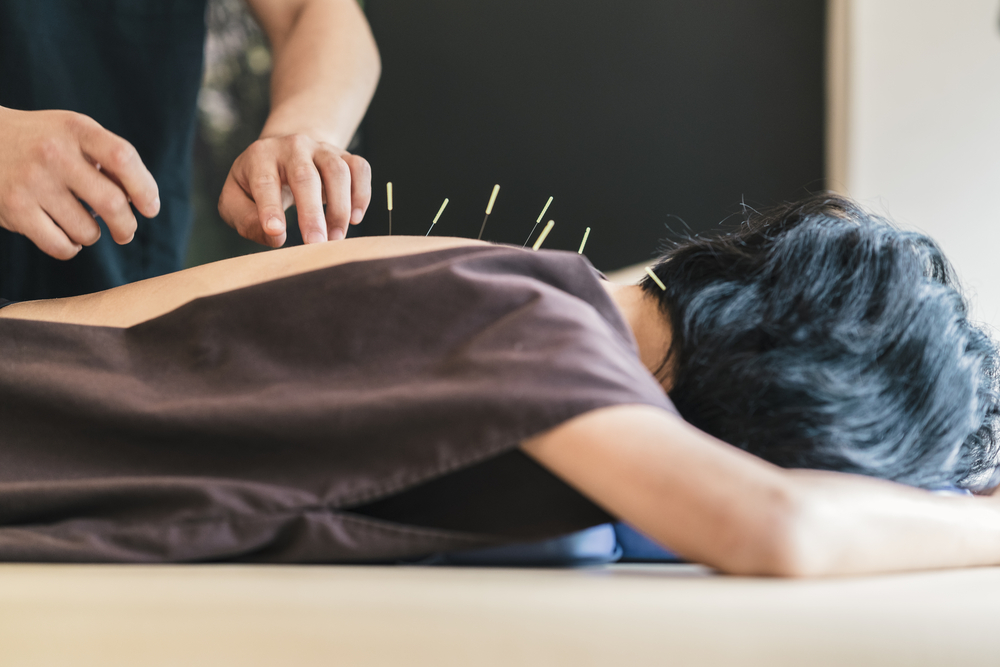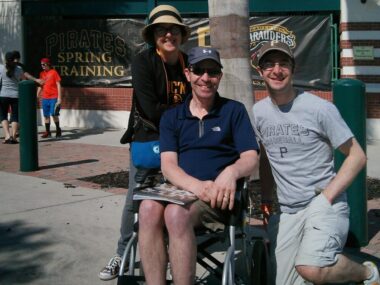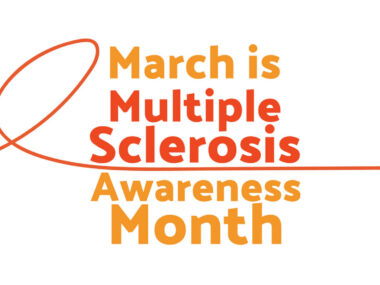Making Some Valid Points About Acupuncture and MS
Written by |

 Have you ever used acupuncture? I have a number of times and would do so more often if it were a medical service covered by my insurance. Unfortunately, for now, most complementary treatments we have available to help with the symptoms of multiple sclerosis are not covered by commercial insurance.
Have you ever used acupuncture? I have a number of times and would do so more often if it were a medical service covered by my insurance. Unfortunately, for now, most complementary treatments we have available to help with the symptoms of multiple sclerosis are not covered by commercial insurance.
In my state, the Bureau of Worker’s Compensation will pay for people injured on the job to try acupuncture, but not the regular commercial insurance customers. Just because they don’t pay, though, doesn’t mean it’s a treatment option we should ignore.
I have had acupuncture treatments on and off since 2009 and, without question, after each session I feel better. I have been treated for some of the pains and common symptoms associated with MS, but I also go in for what I call a routine tune-up. This is where my acupuncturist places needles along my spine to help with the pathways (also called meridians) that flow through my body.
My acupuncturist has a Doctor of Oriental Medicine degree, and also is a licensed acupuncturist in the state of Ohio. Just like other medical personnel, acupuncturists train for many years in this treatment and are always undergoing more continuing education to stay current, even though this is treatment dates back more than 2,000 years.
Briefly, science explains that acupuncture and those needle points stimulate the nervous system. When the nervous system is stimulated, it releases chemicals that can affect how we experience discomfort and pain, or even cause our bodies to release additional chemicals. All of this stimulation creates a reaction in the body’s ability to heal and usually promotes a sense of well-being.
In Acupuncture and Multiple Sclerosis: A Review of the Evidence, researchers took a closer look at prior studies of MS and found a lack of rigorously designed research that would allow a scientific conclusion to the effectiveness of acupuncture. Acupuncture for anything often is disregarded in western medicine, even though it is becoming a more commonly accepted treatment form. I find this sad and not surprising, because even in my own house there is resistance to the idea that acupuncture works. My husband still thinks our money would be better spent on massage therapy, which I also have done regularly.
There are many symptoms treated with acupuncture, including bladder function, gait problems and fatigue. A number of quality-of-life measures also can be looked at with these treatments. From my own experience, I can tell you acupuncture has a calming effect and I truly relax during treatments. A good friend who also has MS finds just the opposite, though; being needled creates problems for her, as if her central nervous system is overexcited.
When the authors of this article looked at the work done in acupuncture, what they found were a small selection of poorly designed studies with little scientific merit. There was plenty of anecdotal information, such as what I have shared here with my own experiences.
The authors of this article agree, stating: “Although there is evidence of extensive use of acupuncture in treating MS, there is a striking paucity of literature available to describe its use or its efficacy. Extensive methodological flaws mar the few studies that do exist. Despite this, practitioners should not assume that acupuncture is not effective in this population but rather that the literature is insufficient to make claims either for or against its use.”
These few studies give credence to the idea that acupuncture may do something special for people with MS, and deserves a closer look, particularly because it involves no drugs and does no harm to the body.
***
Note: Multiple Sclerosis News Today is strictly a news and information website about the disease. It does not provide medical advice, diagnosis, or treatment. This content is not intended to be a substitute for professional medical advice, diagnosis, or treatment. Always seek the advice of your physician or other qualified health provider with any questions you may have regarding a medical condition. Never disregard professional medical advice or delay in seeking it because of something you have read on this website. The opinions expressed in this column are not those of Multiple Sclerosis News Today, or its parent company, Bionews Services, and are intended to spark discussion about issues pertaining to multiple sclerosis.



Michael
I have also made acupuncture part of my treatment plan and I'm glad I have. Specifically, I have Trigeminal Neuralgia, a painful, shocking nerve pain in my gums caused by pressure an lesion in my brain is placing on the nerve. In conjunction with my medicines, acupuncture does help calm down the pain and make it harder to trigger.
As cost for traditional acupuncture can be prohibitive, I HIGHLY suggest folks interested in trying it out find a local community acupuncture business. In these settings, you are one of several in a room of reclining chairs, and they only "pin" you in setting-appropriate places-- your lower legs and feet, lower arms and hands, and face or head (if necessary). The best part? Each session is between $20 and $40-- you decide how much you want to pay!
Don't be *too* afraid of the needles. They are hairline, and depending on your acupuncturist and their style, it will hopefully be painless. My first sessions (at Little Bird Community Acupuncture in Washington, DC's Adams Morgan neighborhood) were great-- my acupuncturist gave me calming breathing instructions that help you prepare/ignore when the needles enter. I have since moved to Charleston, SC and go to Charleston Community Acupuncture regularly, who are also good, but I've learned every practitioner has a slightly different style. One goes a little deeper than I prefer and occasionally, if they move the needle, may hit a nerve uncomfortably. But once they're all set, close your eyes,lean back,and ease into a great, deep nap-- and hopefully any pain you're experiencing (regardless of MS or not) will dissipate, if not immediately, than in the next day or so!
Pieter
I developed an alternative device for acupuncture based on scientific principles as I see and understand it. The device can be worn as a bracelet and to my mind work much faster. Additional supplement is necessary which varies for different blood groups. this can prove beneficial for a lot of diseases which includes Diabetes. In fact for all stress related diseases can even counter Angina heart attacks.
Two Faces of MS
I love acupuncture and my neuro supports it for me. Like anything, each person with MS is different and we need to be treated that way.